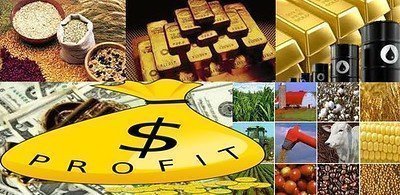We can trade in many ways, this not only helps us to diversify the portfolio but also to invest in products that are present in our lives, in this article I will talk about what are ETC, definition and importance.
This word ETC means Exchange Traded Commodities, they are financial instruments that offer the opportunity for traders to invest in commodities such as oil, gold, copper, soybeans, wheat, livestock…
Some may have heard of the cousin ETF (Exchange Traded Fund) that have been going out of fashion in recent years, the two products have some similarities in fact they are buyable as a simple stock and both passively replicate the trend of an underlying. In the case of Exchange Traded Commodities, it could be oil for an ETF, for example, a basket of high-yield bonds.
Even you investor can buy a commodity without having to order a barrel of oil, specifically the issuance of the ETC is made by a vehicle institution called SPV (Special Purpose Vehicle), the instrument price is attached directly or indirectly to the underlying trend.
You can decide to buy either a single commodity or a “basket” of commodities depending on your strategy, I remind you that the product structure varies depending on the issuing company, beware because in Australia and London the ETCs have a specific structure, my advice as with the options is to always read characteristics . Investing in Etc allows you to replicate one or more underlyings without many problems unlike futures where a margin is required from the broker in addition to “roll” charges when contracts expire.
ETC offer different ways of buying or selling with advantages and disadvantages, let’s analyze them in a small summary:
Pros:
- Financial leverage
- High liquidity
- They are not bound to a deadline
- There are no risks related to commodity storage
- Entry fees are clear and there are no other
- The issuer’s only management fee
Cons:
- Leverage risk because it can increase losses if underlying goes in the opposite direction
- Strong movements due to volatility
- Exchange risk as they are quoted in most dollars
Always be careful because ETC are derivatives.

